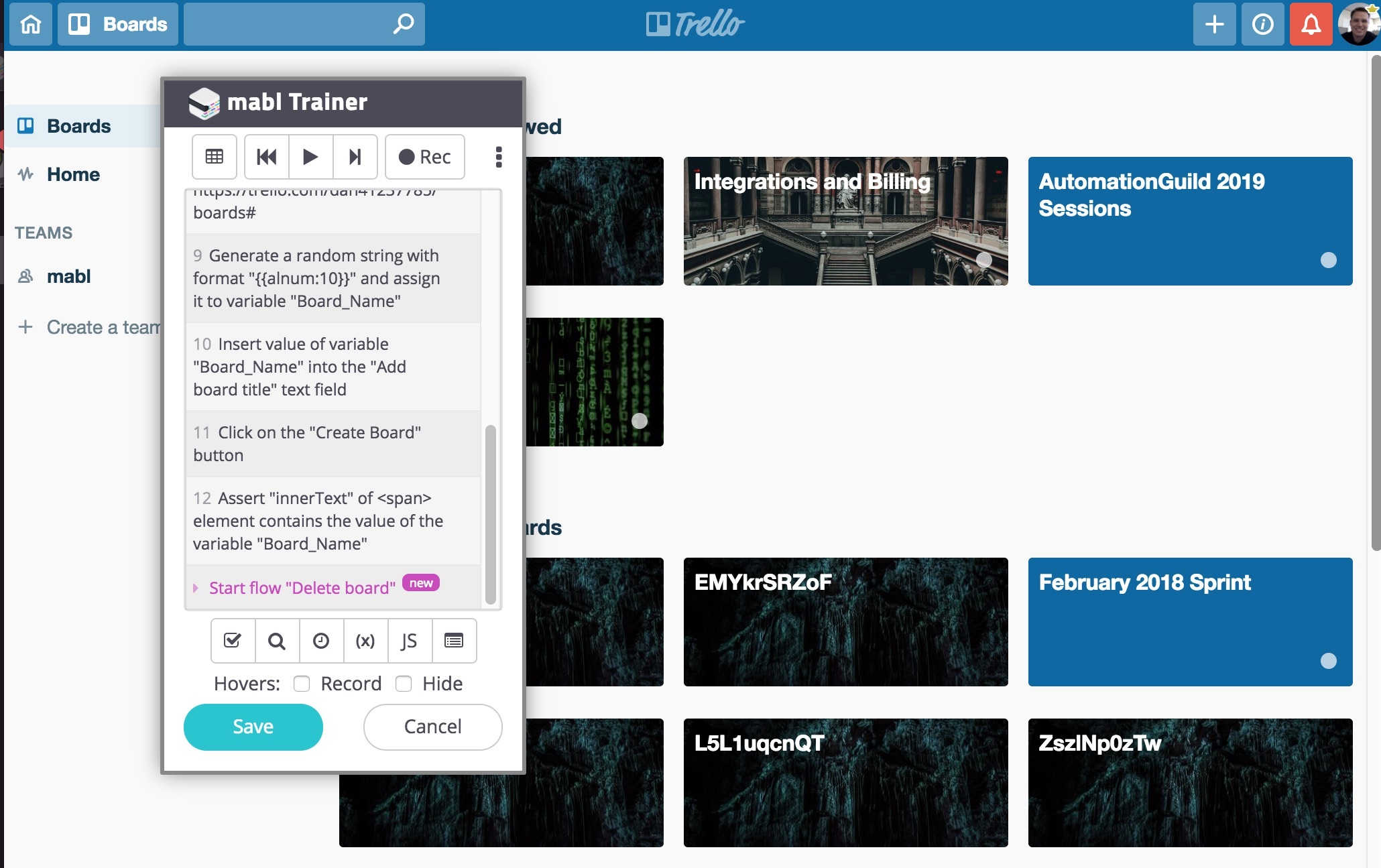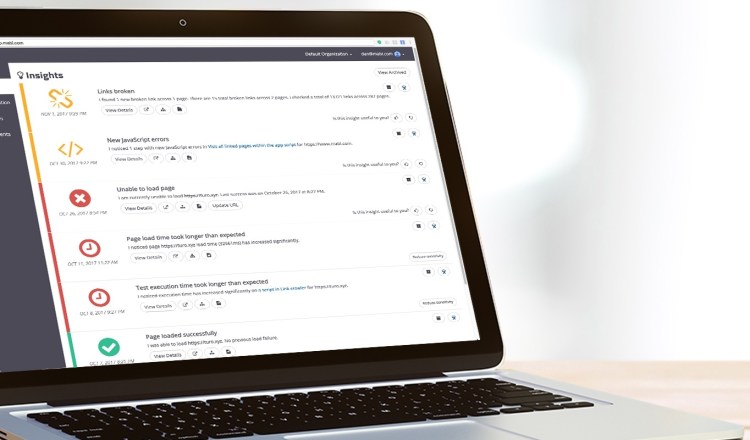testsetset
Fledgling automated software testing startup Mabl has raised $20 million in a series B round of funding led by Alphabet’s venture capital (VC) arm GV, with participation from its series A investors Charles River Partners (CRV) and Amplify Partners.
Mabl was founded out of Boston in 2017 by former Googlers Dan Belcher and Izzy Azeri, who had sold Stackdriver, a cloud systems monitoring business, to the internet giant back in 2014 for an undisclosed amount. Google later leveraged its acquisition when it launched the rebranded product as Google Stackdriver two years later 2016, before Belcher and Azeri left their product management positions at Google to form Mabl, which they formally launched to the public in February this year.
In a nutshell, Mabl is an automated software testing tool that uses machine learning to find bugs, JavaScript errors, broken links, latency, and visual regressions, among other glitches in websites. It nestles in a space currently occupied by the likes of Selenium, which Mabl previously said was the quality assurance (QA) tool of choice for most of its clients during the alpha stage. But by bringing scriptless testing to the browser underpinned by a focus on machine learning, the company is looking to expedite and simplify the testing process.
It can also integrate into developers’ existing workflow, as it supports Atlassian, Jira, Slack, Webhooks, Jenkins, and more.
June 5th: The AI Audit in NYC
Join us next week in NYC to engage with top executive leaders, delving into strategies for auditing AI models to ensure fairness, optimal performance, and ethical compliance across diverse organizations. Secure your attendance for this exclusive invite-only event.
QA is an integral facet of shipping functional software, but the testing process can often be slow, which has a knock-on effect for shipping flaw-free products — testing is a continuous process that never ends. With Mabl, users install a Chrome browser extension to help coach Mabl, then Mabl develops machine learning models that predict how the app should perform. It’s worth noting that although the trainer only works within Chrome, the tests that emerge from the trainer work across browsers.
The more tests it carries out, the more it learns what constitutes normal behavior, and thus it helps determine what specific code change led to a new bug, for example.

Above: Mabl trainer
Prior to now, Mabl had raised $10 million in funding, and with another $20 million in the bank, it said that it plans to expedite its product development and make it easier to “implement and maintain automated testing at Enterprise scale,” according to a statement released by the company today.
“This new investment and product launch are a direct result of the customer demand we’ve seen since we brought Mabl to market,” noted Azeri. “Enterprises that use Mabl save significant time on test creation and maintenance, enabling them to ship products faster.”
Indeed, alongside its funding news, Mabl revealed a new enterprise-focused product called, somewhat sensibly, Mabl Enterprise. The offering is designed for larger companies to leverage its automated testing smarts with additional security measures. These include a feature called Mabl Link, which is touted as a “secure tunneling solution” to test applications remotely within a private network or a local machine. The product will also offer cross-browser testing functionality on Firefox, Chrome, and Internet Explorer 11 without having to use a third-party test-cloud platform.
Soon, Mabl Enterprise will also support Security Assertion Markup Language (SAML) services such as Okta, which enable security credentials to be shared by several computers over a network.
“At its core, Mabl uses the power of cloud computing, data analytics, and machine learning to make testing easier,” added Belcher. “The value of Mabl’s intent-driven automation framework, auto-healing tests, and anomaly detection increases exponentially in larger, more complex environments.”
Automation is infiltrating just about every area of industry, and software testing is no different. Austria-based Tricentis has raised big bucks for its software automation smarts for the enterprise, while San Francisco-based Testim.io last year raised north of $8 million.
GV is no stranger to automation investments too, having recently invested in the likes of Voicera, which develops an AI that draws insights from meeting notes, as well as crash detection platform Bugsnag.
“Driven by the technical strength of the founding team, Mabl takes a novel approach to automated web testing,” added GV general partner Karim Faris, who also now joins Mabl’s board of directors. “We are excited to partner with Mabl as they usher in a new era of innovation in the testing space, and help enterprises deliver on the promise of effective DevOps.”


